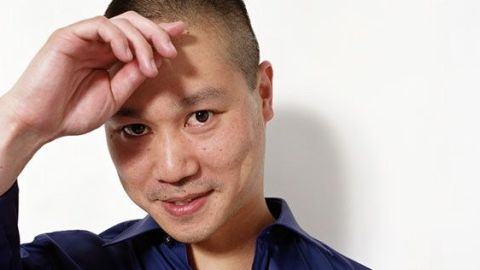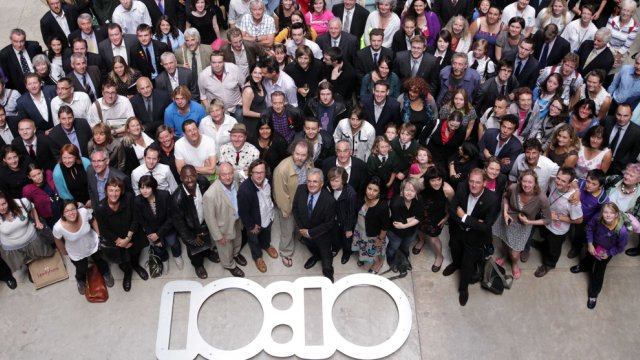Zappos’ Tony Hsieh: Happiness and Higher-Purpose at Work

Can work make you happy, and—more than that—can work be driven by a higher purpose? While a professional calling or high-profile occupation has long been seen to bring purpose and fulfillment, can a job in retail or in a call center, be driven by more than paycheck motivation. Yes, says Tony Hsieh, CEO of the successful online shoe retailer Zappos, and happiness is not only essential in customers and employees, it’s essential to profits as well.
“We decided to focus on customer service,” Hsieh says of Zappos, “which is all about making customers happy and then over time we put more and more emphasis on company culture, which is all about making employees happy.”
Working for a paycheck, or even for a fortune, is misguided, says Hsieh. “The default assumption that I had and that our society in general has is more money equals more happiness and all the research has shown that that’s true up to a point, up until you can get your basic needs met, but then really there is other stuff that has a much bigger impact on your happiness besides just money.”
On the genesis of his “delivering happiness” business philosophy, Hsieh says: “A funny thing happened when we actually communicated this to our employees. We found that suddenly employees were a lot more passionate about the company, a lot more engaged and when customers called they could sense the personality at the other end of the phone wasn’t there just for a paycheck, but really wanted to provide great service and when vendors came into our offices of visited us they wanted to stay longer and visit more frequently.”
Zappos takes some counter-intuitive approaches to customer service, but they pay off over the long term, Hsieh says. “If you call us and you’re looking for a pair of shoes and we’re out of stock for your size, everyone is trained to look on three competitor Web sites to see if they can find it there and if they do direct you to that competitor. Obviously in the short term we’re going to lose that transaction, that sell, but we’re not trying to maximize for every transaction. We’re trying to maximize the customer experience and build that lifelong relationship with customers,” he says.
On the importance of adapting to the new economic reality, Hsieh says, “There is a quote from Darwin that it’s something like it’s not the fastest or most intelligent of the species that survives. It’s the one that is most adaptable to change. And I think the same is true for businesses as well.”
“If you look back on the history of giant businesses, corporations that have kind of lost their way or gone bankrupt or whatever it’s because they were stuck in their old ways,” he says.
On the difference between Zappos and Amazon, which recently purchased the former in stock, Hsieh says, “Amazon, I think, really takes more of a high-tech approach. We take more of a high-touch human approach, and we’re not, I guess, trying to necessarily change each other, but we recognize that there is also a lot we can learn from each other.”
“We don’t want people at Zappos that are there just for a paycheck,” says Hsieh, about why his company offers new employees thousands of dollars to quit if they think the fit isn’t right. “We want people that really believe in the company and really want to be with the company for the long term.” The results of what has become know as “the offer” is,“when they decide to turn down the easy money, when they come back to the office on Monday they’re that much more passionate and engaged and committed and that has been by far, the biggest benefit.”
On building a brand and attracting customers, Hsieh says he believes new customers are really existing customers: “Really focus on your existing users or customers and figure out what changes can you make in the website, the service, the product, whatever to get them to come back more often to generate that repeat business and once you kind of figure out that formula then when you get new customers the whole thing just kind of grows exponentially.”





